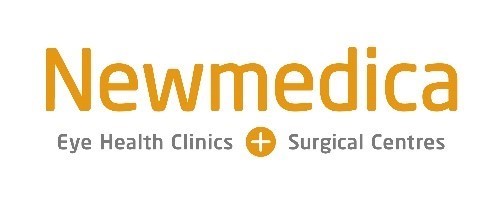Ophthalmology and OMPs
Improving access to ophthalmology
 Improving access to ophthalmology
Improving access to ophthalmology
IMPROVING patient access to ophthalmology services – collaborating with community optometrists – must be a focus for the eye health sector in 2025, says Newmedica.
 Newmedica managing director Rebecca Lythe says that the NHS ophthalmology provider continued to grow its network of eye surgery centres and clinics as part of this mission in 2024.
Newmedica managing director Rebecca Lythe says that the NHS ophthalmology provider continued to grow its network of eye surgery centres and clinics as part of this mission in 2024.
‘Newmedica is also improving access to ophthalmology services in Jersey and Guernsey, It’s a positive message because we are reaching out to areas that have struggled beyond England,’ she says.
‘We want to prevent avoidable sight loss in every community that Newmedica serves. Making ophthalmology services even more accessible in 2025 is therefore vital.
‘We’ll do this through opening more theatre hubs, more local clinics, offering patient transport in every location and continuing to collaborate with community optometry.’
Ms Lythe adds: ‘We’ll also continue collaborating with optometrists in primary care. Some 70% of post-operation appointments take place back in the community, closer to patients’ homes.
‘This approach is good for patients because it enhances accessibility and fosters a strong relationship between ophthalmologists and optometrists.’
Newmedica’s commitment to continuing professional development of health professionals, including trainee ophthalmologists, optometrists, and theatre scrub nurses, will also continue into 2025.
More broadly, Newmedica is calling on commissioners to improve access to sight-saving age-related macular degeneration and glaucoma services – by using the country’s whole healthcare system.
Currently, patients are being left stuck on NHS waiting lists for critical monitoring and treatment of these conditions. This is because some Integrated Care Boards (ICBs) in England are blocking the independent sector from helping – despite it having capacity and expertise to do so.
‘The risk of people facing permanent sight loss because of these NHS waiting lists is very real. The good news is that together, NHS Trusts and the independent sector, we can do something about this,’ says Ms Lythe.
But change is needed within ICBs when they commission local health services in England. ‘Some ICBs are embracing the role the independent sector can play, but others need to do more. Ensuring patient choice when commissioning services is also vitally important.
‘At Newmedica for example, we have a growing number of our eye surgery and clinics across England that can provide AMD and glaucoma services.’
Ms Lythe concludes: ‘Enabling all providers to deliver services for these NHS patients not only has the potential to change their lives but also supports the wider health service.’























